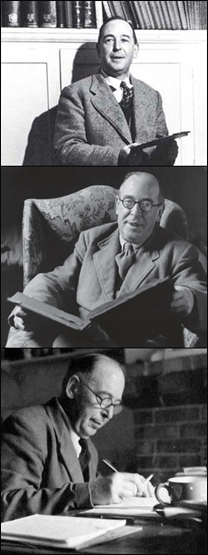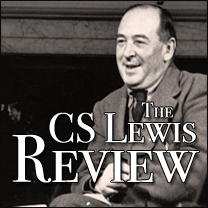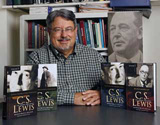
Shusaku Endo: Japanese Apologist
January 25th, 2010 | Skip to comments
Shusaku Endo (1923-1996)
Shusaku Endo was an award-winning Japanese fiction writer and television personality, born in Tokyo in 1923. He lived with his parents in Manchuria until 1933, when they divorced, then accompanied his mother back to her hometown, Kobe, Japan. At age 12 he was baptized as a Catholic, and embraced this faith as an adult. Endo was among the war generation that witnessed the brutal militarism within and without Japan, left to deal with his nation’s defeat at the hands of the Allied Forces in World War II.
Persecuted as a Christian during his schooling in his native land, Endo matriculated at the University of Lyon in France, studying from 1950 to 1953, before returning home to recuperate from a serious illness. This cut short his scholarly submersion in the French literary Catholics, Francois Mauriac, Paul Claudel, and Georges Bernanos, whose influence is evident in shaping Endo’s novelistic sense of being doubly alienated from the modern West, first as a Japanese, and second as a believing Christian observing the Western church’s waning influence within the societies who originally sent their missionaries to Japan.
Shusaku Endo’s work has been available in English translation for about 40 years, and, among those who have familiarized themselves with his canon, has been called a “Japanese Graham Greene,” a useful analogy for introducing a relatively obscure non-Western writer like Endo to a Western audience, though perhaps a bit misleading. As one of the few Christian novelists in Asia, his compelling but profoundly flawed Christian protagonists captivate and endear themselves to the reader in the same way that Graham Greene’s faltering saints do. But Endo’s wayfaring Christian characters are historically situated in the same struggle against tradition and cultural identity with which he himself was afflicted:
For a long time I was attracted to a meaningless nihilism and when I finally came to realize the fearfulness of such a void I was struck once again with the grandeur of the Catholic Faith. This problem of the reconciliation of my Catholicism with my Japanese blood . . . has taught me one thing: that is, that the Japanese must absorb Christianity without the support of a Christian tradition or history or legacy or sensibility
Silence, xx
When Endo looked at his nation through an unblinking Christian perspective, he saw a “swamp” that “sucks up all sorts of ideologies, transforming them into itself and distorting them in the process” (Silence, xix). Endo recognized that as a Japanese Christian he was a walking oxymoron, an anomaly in his native culture, and a hostile witness to the Westerners seeking to understand and contextualize his work.
As a Christian novelist whose readers had no “objective correlatives” for the concepts he wished his fiction to incarnate, Endo saw his personal task as a novelist much differently than his contemporaries in Japan. Rather than mirroring the moral and cultural malaise about him, Endo sought to foster and exemplify such religious concepts as sin, redemption and resurrection in his fiction. Consequently, Endo faced the same dilemma of rehabilitating Christianity for secularized readers that American Catholic writers like Walker Percy and Flannery O’Connor addressed—but against greater odds.
How did one communicate the need for a savior to a society that not only lacked a vocabulary to make this a comprehensible concept, but, in fact, never had the concept in the first place? Endo’s task was nothing less than to take Jesus out of the realm of commonplaces in his native culture, disarming his Japanese readers and getting past their syncretizing defenses, defiantly presenting a Christ they can learn to relate too not as an outsider, but one of their own. His key themes always derive from Japan’s “mudswamp” of moral apathy and its need to find an ethical center rooted in eternal values–something, in Endo’s view, only Christianity can ultimately provide.
Endo’s winsome biography, A Life of Jesus, is an attempt to “dewesternize” Christianity so that the person of Jesus Christ can be made visible to oriental eyes. Endo translator, Richard A. Schuchert has given credence to Endo’s thesis that one reason Christian faith has had so little impact in his country is that the Japanese have always dreaded the authoritarian father-figure so prevalent in their culture; the four most dreadful things on earth, according to one Japanese tradition are: “fires, earthquakes, thunderbolts, and fathers” (A Life of Jesus, 4). So it is in this non-fiction book, written with a novelist’s sense of place and characterization, that Jesus emerges as a more “Asian” messiah, one whose humanity and spirit of self-giving love are given more prominence than his supernatural relationship with an absent “Father in heaven.”
If A Life of Jesus is Endo’s attempt to make Christian faith more palatable to his resistant countrymen, his two historical novels, Silence and The Samurai try to detail the dismal record of Christianity on Japan’s soil. Each novel bitterly indicts both the shallow ambitions of the missionaries who dared to invade the Japanese shores in the 17th-century, and the duplicitous Japanese themselves, who first welcomed the visitors, and then submitted them to brutal martyrdom.
Silence is a dark, epistolary novel of apostasy and betrayal, a narrative as told from the perspective of a Portuguese missionary priest. It is a tale of faith and faithlessness among both Western and Eastern men, men whose integrity as believers and as human beings is under constant attack. At the beginning of the 17th-century, the Edo emperors came to the conclusion that Christianity did not “fit” Japan, banishing Christian missionaries and persecuting their flocks of converts. In Silence, Endo turns that conclusion on its head, establishing that Christianity and Christ fit nowhere, yet everywhere, inasmuch as they dramatize and respond to man’s homelessness in the world, his loneliness: his forlorn hope of finding compensation for the pain of life in eternity, if at all. Endo eventually adapted this piercing novel for the stage in 1970 as The Golden Country.
The Samurai has reminded many readers specifically of Graham Greene’s The Power and the Glory, and its heroic “whisky priest,” focused as it is, on the enduring faith of a humble, despised servant. Rokuemon Hasekura, a warrior in the service of a powerful feudal lord in 17th-century Japan, and his cohorts, escort Father Velasco, an overly ambitious Franciscan missionary from Japan to Mexico to Rome, in an attempt to secure Japanese trading privileges with the West; Fr. Velasco’s aim is to use his diplomacy to become bishop of Japan.
Hasekura is a reluctant envoy who first despises the emaciated man on the cross who serves as the symbol of this baffling faith Velasco represents, and later embraces him as the only light in a civilization growing darker day by day. The Samurai takes the reader on the ill-fated diplomatic journey of Velasco and Hasekura during which both men, stripped of their illusions about self and motive, embrace a common faith. The two men return to Japan as fools for Christ’s sake, true believers without pretense or pride, moving inexorably toward their martyrdom.
Endo’s most accessible and compelling work for Western readers, however, may actually one of his earlier compositions, Wonderful Fool, a 1959 novel translated for English readers in 1974, that demonstrates Endo’s versatility and talent for comic writing. In it, Gaston Bonaparte is “a fool for Christ,” a bumbling protagonist whose selflessness and genuine love for his fellow men reflect the Christ-like attributes which Endo wants his indigenous reader to recognize. Gaston is a “fool” in a Dostoevskyian sense, one who though surfacely “foolish,“ may disarmingly voice and embody the truth in a most poignant way.
Set twelve years after the end of WWII, Wonderful Fool tells the story of Gaston Bonaparte, a bonafide descendant of Napoleon himself, who arrives in Japan on a third-rate steamer, surprising his sometime pen pal, Takamori, a clerk, and his sister, Tomoe. A failed French seminary student who has launched out on his own, “Gas” seems to be a bumbling, clumsy oaf, well-intentioned but utterly ineffectual. He is clearly a stranger in a strange land, a wayfarer whose language and whose thought processes set him apart from everyone. This is dramatized when he choose to bring the gospel to the squalor of Tokyo’s underworld as he steadily gropes toward his own destiny, toward his own Gethsemane and later his own Golgotha.
The key relationship in the novel occurs between Gas and the gangster, “Endo,” who has kidnapped the naïve missionary. Compelled by the world-weary Endo to assist him in getting revenge against another criminal, Gas thwarts him twice and eventually dies in saving both men from killing each other. His climactic and heroic acts on behalf of two criminals beyond redemption, earn him the reverence from Takamori and Tomoe that his tenderness and tolerance so clearly warranted.
In a’ final scene, Gaston, apparently drowned in his mission of mercy, is remembered as a “lone egret, flapping snow-white wings,” a traditional Japanese figure of peace and transfiguration. Wonderful Fool is thus a parable about faith, the final scenes of the novel powerfully capturing Endo’s vision of contemporary Japan: a mudswamp in which a wise fool battles with all his strength to redeem two hoodlums who want neither redemption nor life, but whom he pours his life out all the same.
Such is the Christian vision of Shusaku Endo: Jesus engraphed as the humble but single-minded “fool” who abandons all to reach those who are not so much hostile as they are indifferent, not so much faithless as they are cynical. This “foolish” Jesus is for Endo finally the ultimate incarnation of the Redeemer which he wishes his countrymen to understand and embrace. In such novels as Silence, The Samurai, and Wonderful Fool, and short story collections such as Stained-Glass Elegies and The Final Martyrs, Endo succeeds in creating a vision of Christian faith obstinate enough to endure even in soils that have never been fertile for its growth.
Selected Bibliography of Works by Shusaku Endo translated into English
Deep River. Trans. Van C. Gessel. New York: New Directions, 1994.
The Final Martyrs. Trans. Van C. Gessel. London: Peter Owen, 1993.
Foreign Studies. Trans. Mark Williams. London: Peter Owen, 1989.
The Golden Country. Trans. Francis Mathy. London: Peter Owen, 1989.
A Life of Jesus. Richard A. Schuchert. New York: Paulist Press, 1973.
The Samurai. Trans. Van C. Gessel. New York: Vintage Books, 1984.
Scandal. Trans. Van C. Gessel. New York: Dodd, Mead, 1988.
The Sea and Poison. Trans. Michael Gallagher. New York: Taplinger, 1972.
Silence. Trans. William Johnston. New York: Taplinger, 1980.
Stained Glass Elegies. Trans. Van C. Gessel. New York: New Directions, 1990.
Volcano. Trans. Richard A. Schuchert New York Taplinger, 1980.
When I Whistle. Trans. Van G Gessel. New York: Taplinger, 1974.
Wonderful Fool. Trans. Francis Mathy. London: Peter Owen, 1974.




Endo was a brilliant and paradoxical man. I’ve never understood the unbridled eroticism of his work–unless it was his compromise with the “mudswamp.” Percy’s Love in the Ruins comes close, though, in the attempt to magnify the quagmire of one’s age and culture.
Comment by Trevant Wilson — 25 January 2010 @ 11:51 AM
[…] persecutor. Their death was a testimony that life transcends human judgment. Japanese novelist Shusaku Endo writes of the possibility of a Christianity shorn of its Western triumphalism and of a […]
Pingback by Remember the fruit of the Spirit by which they have enriched our lives - a Celebration and Memorial of the New Guinea Martyrs | Key SensitivityKey Sensitivity — 4 September 2013 @ 11:38 PM
[…] basada en la novela del mismo título de Shusaku Endo (1923-1996), considerada la obra maestra del escritor japonés y católico que, por la problematicidad religiosa de sus temáticas y personajes, ha sido comparado con […]
Pingback by Liam Neeson volverá a ser jesuita de la mano de Martin Scorsese | Moral y Luces — 4 August 2014 @ 6:00 AM